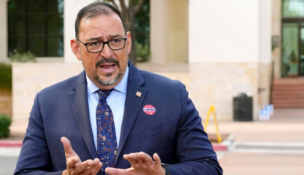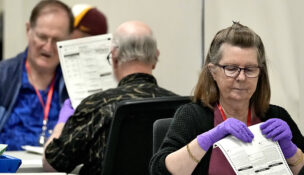Chairmen sift through 100s of bills with only 2 weeks left in fiscal 2009
Arizona Capitol Reports Staff//June 12, 2009//[read_meter]
Chairmen sift through 100s of bills with only 2 weeks left in fiscal 2009
Arizona Capitol Reports Staff//June 12, 2009//[read_meter]
As the Senate shifts to cranking out non-budget measures in the final weeks of session, some lawmakers are raising concerns that the rush will lead to defective laws that they...
No tags for this post.

















